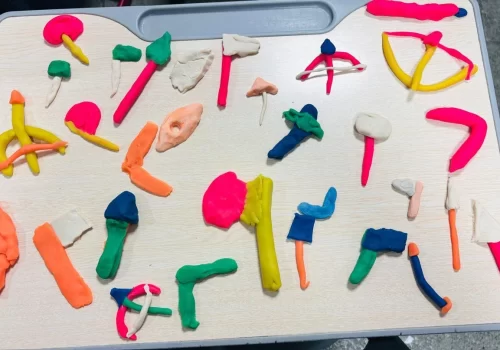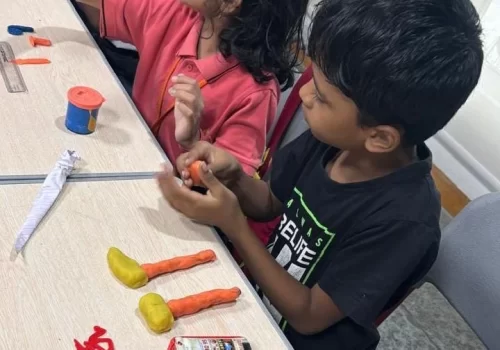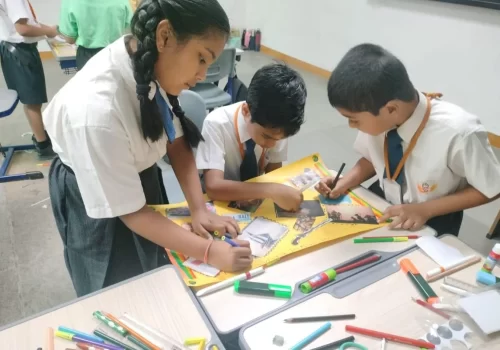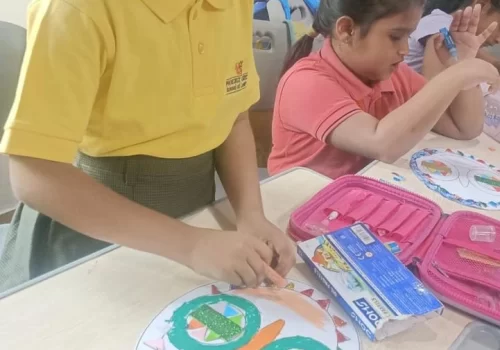The importance of Cambridge Humanities for Primary students
As an educator, I have witnessed firsthand the profound impact that Cambridge Humanities can have
on primary students. The study of humanities is not just about learning history, geography, and
culture—it is about equipping young minds with the essential skills they need to thrive in an
ever-changing world. At its core, humanities provide students with the tools to think critically, reason
creatively, and engage compassionately with the world around them
The Cambridge Primary Humanities curriculum offers a structured and engaging approach to
exploring the human experience through three key strands: People, Past, and Places. Each of these
strands provides students with an opportunity to connect with the world on a deeper level, helping
them understand the complexities of identity, community, and culture.
Through the People strand, students embark on a journey of self-discovery and global
awareness. They delve into the intricacies of identity, community, and cultural diversity, learning
about human rights, power dynamics, and economic systems. This strand is essential in developing
empathy and respect for others, skills that are vital in our increasingly interconnected world. I have
seen how discussions on these topics lead to thoughtful conversations among students, who begin to
appreciate the differences and similarities that make us unique as individuals and as societies.
The Past strand offers students an opportunity to explore history in a way that connects the
past to the present and future. By analyzing historical events from multiple perspectives, students
gain a nuanced understanding of how societies evolve and how our understanding of the past shapes
our present-day decisions. I have seen students make real-world connections between historical
events and current issues, which not only deepens their understanding but also empowers them to
think critically about the choices they make as future leaders and responsible citizens.
The Places strand is equally impactful, as it introduces students to the dynamic relationship
between people, places, and environments. Through geographic inquiry, students learn how our
world is interconnected, from local communities to global ecosystems. By studying the environment
and human impact, students develop an awareness of sustainability and the importance of preserving
the world for future generations.
At Phoenix Cambridge, humanities and social sciences is an integral part of teaching and learning.
For instance, Children participated in a fun Finger Puppets activity, creating their own puppets while
exploring how toys have changed over time. They connected this to their history lessons on Toys and
Games Over Time, discussing how traditional toys differed from modern ones. This hands-on task
helped them understand the evolution of play and creativity across generations. They also explored
ancient Roman tools using play dough stepping back in time and unveiling the secrets of Roman
military success and strategic brilliance.


Similarly, In the geography lesson, the teacher used a globe to explain the concepts of the Equator,
North Pole, and South Pole. A light source was used to demonstrate how the Earth’s rotation causes
day and night. This interactive activity enhanced students’ understanding of Earth’s movement and its
impact on time zones.
As a part of World Heritage Day Celebrations, our students crafted beautiful posters integrating
cultural heritage with art. From ancient traditions to modern customs, the posters showcased the
beauty of world heritage.


In conclusion, Cambridge Primary Humanities provides students with a well-rounded education that
nurtures curiosity, creativity, and compassion. By fostering a deeper understanding of culture, history,
and geography, students develop the essential skills needed to navigate an increasingly complex
world. As an educator, I feel incredibly privileged to guide students on this transformative journey,
helping them build a strong foundation for their future academic success and global citizenship.




